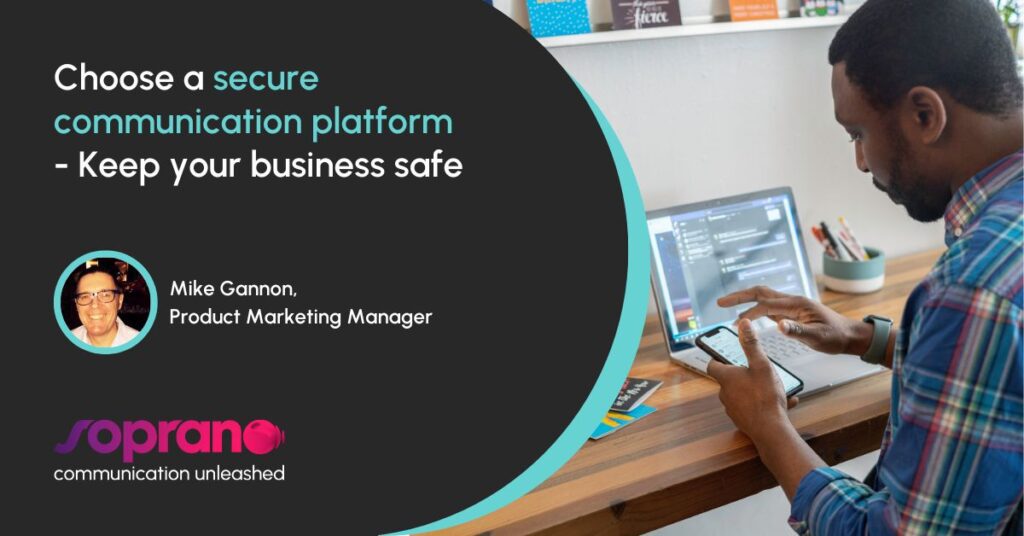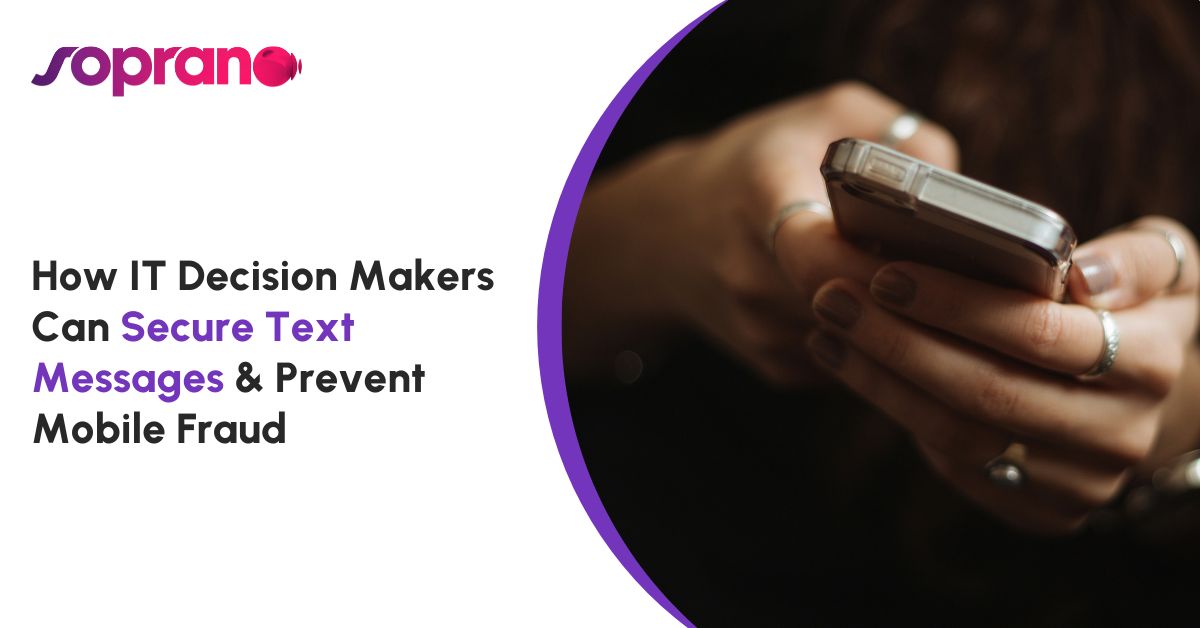
Threat actors are increasingly targeting enterprises and exploiting vulnerabilities to gain access to sensitive information and systems. As more businesses choose mobile communication to interact with their audiences, choosing a secure communication platform is fundamental. Learn here how to protect your business and customers.
Cyberattacks can have serious consequences, including financial losses, reputational damage, and disruption to operations. The damage is so great that nearly 90% of IT executives agree that protecting intellectual property is a top priority among security management activities deployed.
One of the main ways that threat actors are targeting enterprises is through phishing and smishing attacks. These attacks often use carefully crafted emails or text messages to trick individuals into revealing sensitive information or downloading malicious software.
Another common tactic used by threat actors is to exploit vulnerabilities in a company’s systems or networks. This can include identifying and exploiting unpatched software or hardware or using malware to gain access to a company’s systems.
Threat actors may also use social engineering techniques to gain access to sensitive information or systems. This can include posing as a legitimate employee or vendor or using other tactics to trick individuals into revealing sensitive information.
One of the biggest challenges for businesses in preventing mobile fraud is the constantly evolving nature of the threat landscape. Threat actors are constantly developing new tactics and techniques, making it difficult for businesses to stay ahead of the curve.
To protect against these attacks is important for businesses to take a proactive approach to security. This includes regularly updating systems and software, implementing robust security protocols, and providing training to employees to help them recognize and avoid potential threats.
How to protect your business with a secure communication platform
- Use multi-factor authentication to protect against unauthorized access to the messaging system.
- Implement robust security protocols to protect against potential threats.
- Provide training to employees to help them recognize and avoid potential threats.
- Monitor systems and networks for any potential vulnerabilities or suspicious activity.
- Use encryption to protect the content of messages in flight and at rest too ensure that they cannot be read by unauthorized individuals.
- Conduct regular security audits to identify and address any potential weaknesses.
- Provide training to employees to help them recognize and avoid potential threats.
- Work with security experts to stay informed about the latest threats and best practices for protecting against them.
- Stay informed about the latest threats and best practices in the field of security and adjust the messaging system accordingly.
But when it comes to secure messaging, ensuring to have a trusted messaging solution from a CPaaS provider is a key factor.
5 tips for choosing a secure communication platform
- Choose a CPaaS provider with a proven track record of providing secure messaging solutions. This may include looking for a provider that has experience working with other enterprises in your industry, as well as one that has received security certifications or accreditations for its practices.
- Choose a platform with a range of security features. A secure communications platform should have security features such as encryption, content masking, authentication, and IP access controls. This will help to ensure that the messaging solution is as secure as possible.
- Ensure that the provider has a commitment to staying up to date with the latest security technologies and practices. This will help to ensure that the solution remains secure over time, even as new security threats emerge.
- Consider working with a provider that offers support and assistance with implementing and using the messaging solution. This can help to ensure that the solution is used properly and that any potential security issues are quickly addressed.
Why is Soprano a secure communication platform?
Soprano provides a secure enterprise messaging solution called Soprano Connect, which is designed specifically for and deployed to over 3500 enterprise and government customers.
Soprano Connect includes a range of messaging APIs and a powerful cloud administration platform that offers sophisticated routing, consent management, sub-account billing, localization, and a variety of security and compliance controls to assist organizations in complying with regulations, policies, and anti-spam guidelines.
Several security features can be deployed on Soprano Connect to provide additional access control and visibility layers. This allows Soprano to meet stringent organizational IT security policies.
- Data is encrypted on transit (TLS 1.2) and encrypted at REST, and servers are in secure, geographically separate data centres in a high availability configuration to prevent service disruptions.
- Content Masking: secures the content of messages by masking them from view in the portal, reports, or report exports. This enables GDPR-compliant protection of PII data and a lower risk of theft or fraud.
- IP Access Control: allows administrators to restrict access to certain IP addresses
- Single Sign On: allows users to authenticate using their corporate credentials
- Two-Factor Authentication (2FA): adds an extra layer of security to protect the account Soprano Connect login via SMS or EMAIL
- Simple Template Messaging: allows administrators to define standard templates for messages and restricts access to advanced template management
- Authenticator: enables secure access to online services with a two-factor authentication API using one-time passwords delivered via SMS
- User Content Visibility: provides restricted reporting views for standard users
- Consent Management: allows users to set preferences (opt-in and optout) for messages and control how messages are sent to recipients based on the set preferences
- Role-based access control (RBAC): to ensure that individuals only have access to the information and systems that they need to do their job.
Are you interested in learning more about secure mobile communications? Our team would love to talk with you.



